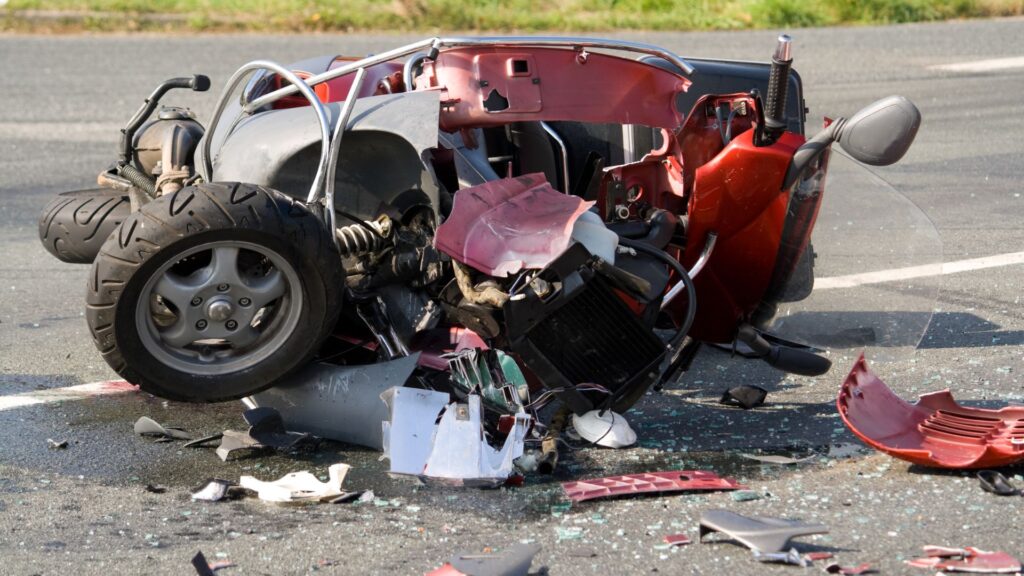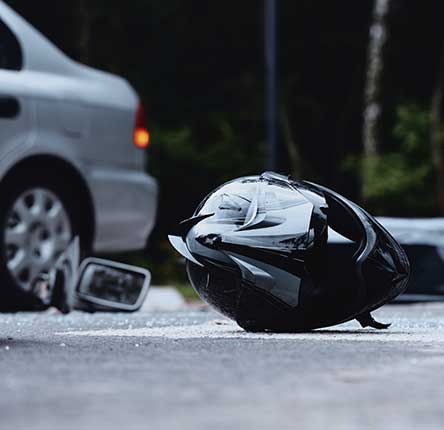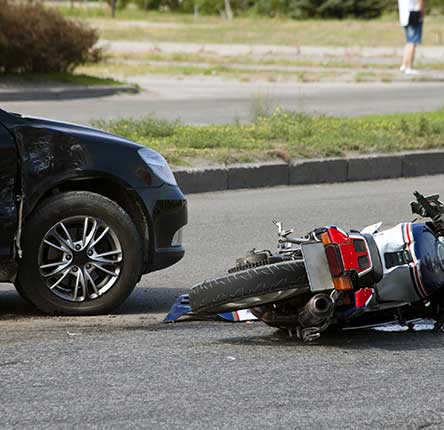There are certain types of motorcycle accidents that may not be covered by motorcycle insurance depending on the specific terms and conditions of the policy. Some examples of accidents that may not be covered include:
- Riding under the influence: If you are riding your motorcycle under the influence of drugs or alcohol, and you get into an accident, your insurance company may refuse to cover the damages.
- Racing or performing stunts: If you get into an accident while participating in a race or performing stunts on your motorcycle, your insurance may not cover the damages.
- Intentional acts: If you intentionally cause an accident, or if you use your motorcycle in the commission of a crime, your insurance may not cover the damages. Accidents related to road rage may be considered intentional acts.
- Riding without a license or while violating the terms of your license: If you get into an accident while riding without a valid motorcycle license, or if you violate the terms of your license, your insurance may not cover the damages.
- Using your motorcycle for commercial purposes: If you use your motorcycle for commercial purposes, such as delivering goods or providing rental services, your personal insurance policy may not cover any accidents that occur while you are on the job. You may need to purchase a separate commercial insurance policy to ensure that you are covered.
It’s important to carefully read and understand your motorcycle insurance policy to know what is and is not covered.
What’s the best thing to do when you are not covered by insurance after a motorcycle accident?
If you are not covered by insurance after a motorcycle accident there are a few things you can do:
- Seek medical attention: If you or anyone else involved in the accident has been injured, seek medical attention immediately. Your health and well-being should be your top priority. Select medical providers that accept your health insurance. If you are an active motorcycle rider consider purchasing a health insurance plan that does not have a high deductible. If you are out of work, you may not have money to cover the deductible plus your other living expenses such as rent and food.
- Gather information: Collect as much information as possible about the accident, including the names and contact information of everyone involved, as well as any witnesses. Take photos of the scene, and write down any details you can remember about what happened.
- Consult an attorney: Consider consulting with an experienced personal injury attorney who can advise you on your legal options. They can help you determine whether you may be able to file a lawsuit to recover damages from the at-fault party.
- Explore other sources of financial assistance: If you are facing significant medical bills or other expenses related to the accident, there may be other sources of financial assistance available. For example, you may be able to apply for government assistance programs or seek help from charitable organizations.
- Take steps to prevent future accidents: Finally, take steps to prevent future accidents by practicing safe riding habits and following all traffic laws and regulations. Consider taking a motorcycle safety course to improve your skills and reduce your risk of future accidents.
Other sources of financial assistance you can use after a motorcycle accident in an instance where you are not covered by motorcycle insurance
If you are involved in a motorcycle accident that is not covered by insurance, there are several other sources of financial assistance that you may be able to avail, depending on your circumstances. Here are some examples:
- Government programs: You may be eligible for government assistance programs such as Medicaid, Medicare, or Social Security Disability Insurance (SSDI), which can help cover medical costs and other expenses related to the accident. You can check with your state’s Department of Health and Human Services or the Social Security Administration to see if you qualify.
- Charitable organizations: There are many charitable organizations that offer financial assistance to individuals and families in need, including those affected by motorcycle accidents. Some examples include the American Red Cross, the Salvation Army, and the United Way. You can search for organizations that offer financial assistance in your local area.
- Personal injury lawsuit: If someone else was responsible for the accident, you may be able to file a personal injury lawsuit to recover damages for medical expenses, lost wages, and other related costs. Consult with an experienced personal injury attorney to determine your legal options.
- Crowdfunding: You can also try to raise funds through crowdfunding platforms like GoFundMe or Kickstarter, which allow you to solicit donations from individuals online. Be sure to clearly explain your situation and provide evidence to support your case.
- Medical payment plans: If you are facing significant medical bills, some healthcare providers may offer payment plans or financial assistance programs to help you pay for your care over time. Talk to your healthcare provider to see if these options are available to you.
It’s important to explore all of your options and to reach out to your community and loved ones for support during this difficult time.
Contact a Personal Injury Attorney Now If You Have Been Injured in a Motorcycle Crash
Anyone hurt because of another person’s negligence should promptly retain a personal injury attorney. Talking to an experienced attorney can help you understand your rights. Pinder Plotkin is an experienced personal injury law firm that protects the rights of motorcycle riders Contact us to have one of our network attorneys provide a FREE consultation.






